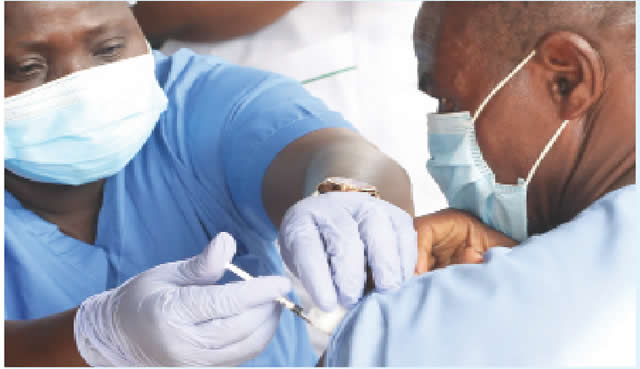A joint team of experts on Friday said Nigeria’s readiness to prevent, detect and respond to public health threats had increased to 54 per cent.
The experts disclosed this at the end of the five-day second JEE for International Health Regulations Core Capacities in Abuja, adding that the score increased from 39 per cent in 2017 to 54 per cent in 2023.
The JEE team noted that in 2023, Nigeria did not score below 50 per cent in any thematic area – prevention, detection, response, and International Health Regulations related to hazards and Point of Entry and border health.
The Lead external evaluator and the Senior Adviser of the World Health Organisation Global JEE Secretariat, Dr Hendrick Ormel, said Nigeria made a lot of progress to have moved to 54 per cent, but a lot still needed to be done.
“It is necessary that the food will be safer to eat. A lot needs to be done but I can see that you are dedicated and the people working for you are professionals but you are understaffed, and by doing this, the government is not only helping you but helping the global health security
“Nigerian needs to empower and enable the implementation of the NAPHS starting from 2024 to address gaps in health security identified by the JEE, the lessons of the COVID-19 pandemic, and other emergencies.
“Coordinate multi-sectoral public and private engagement for national and subnational multi-hazard health emergency preparedness and response clearly to the national disaster risk management architecture, strategy, and plan,” he said.
In his address, the Director General of the Nigeria Centre for Disease Control and Prevention, Dr Ifedayo Adetifa, said, Nigeria has achieved the pass mark but there is a need to focus on the identified gaps for improvement.
“This JEE has come at the right time. We now have new ministers that are going to be in office from Monday, and this is the time to use the recommendations for short and long-term plans.
“We also know that the government led by President Bola Tinubu has a health agenda that covers broadly a lot of overlapping areas that were identified as gaps like universal health care, strengthening primary health care, digital health coverage, and health security,” Adetifa said.
It would be recalled that Nigeria conducted her first JEE in 2017, using the JEE 1.0 tool which gave a readiness score of 39 per cent.
Share your story or advertise with us: Whatsapp: +2347068606071 Email: info@newspotng.com












